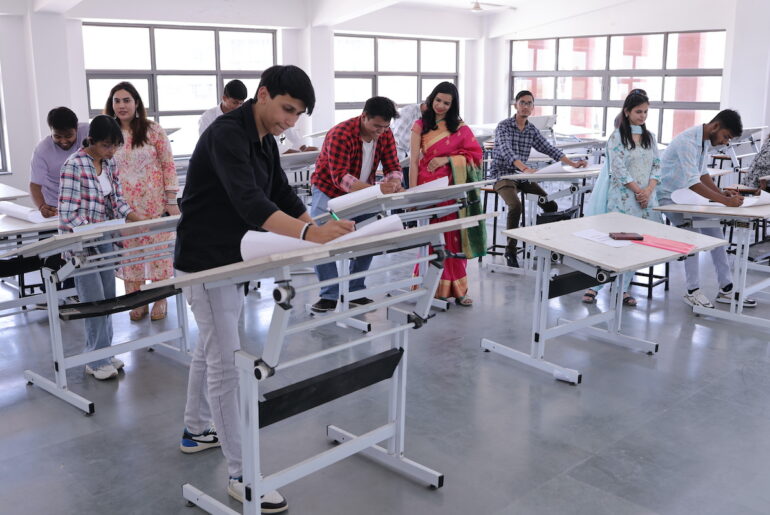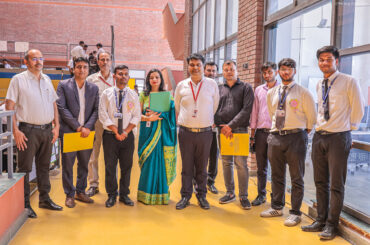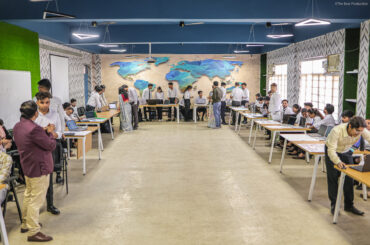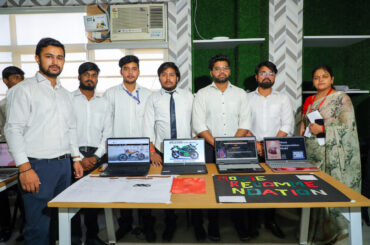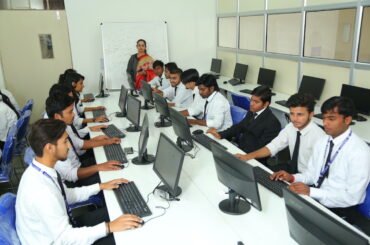BCA Course Fees
The Bachelor of Computer Applications (BCA) is a popular undergraduate program for students interested in pursuing a career in Information Technology. BCA Course Fees vary by institution, providing options for students with different financial backgrounds.
The course fees for BCA vary widely depending on the institution and location. Generally, government or public colleges offer lower fees, ranging from ₹15,000 to ₹30,000 per semester or year.
In contrast, private institutions typically charge higher, with fees ranging from ₹40,000 to ₹1,50,000 annually. Some elite private institutions might charge even more, reflecting their infrastructure and placement records.
The total cost often excludes additional expenses like hostel fees, library charges, and laboratory fees, which could add significantly to the overall expenditure.
Financial aid and scholarships are available in many institutions, which can help mitigate these costs for eligible students.
Some of the most opted courses in India and St. Andrews college or different Engineering college or Management colleges are as follows:-
- Btech
- Btech CSE
- Btech ETCE
- MTech
- BCA
- BBA
- MBA
- MCA
- DPharma – St. Andrews College of Pharmacy
- BPharma – St. Andrews College of Pharmacy
- BArch – St. Andrews College of Architecture
Bachelor of Computer Applications (BCA) Course Overview
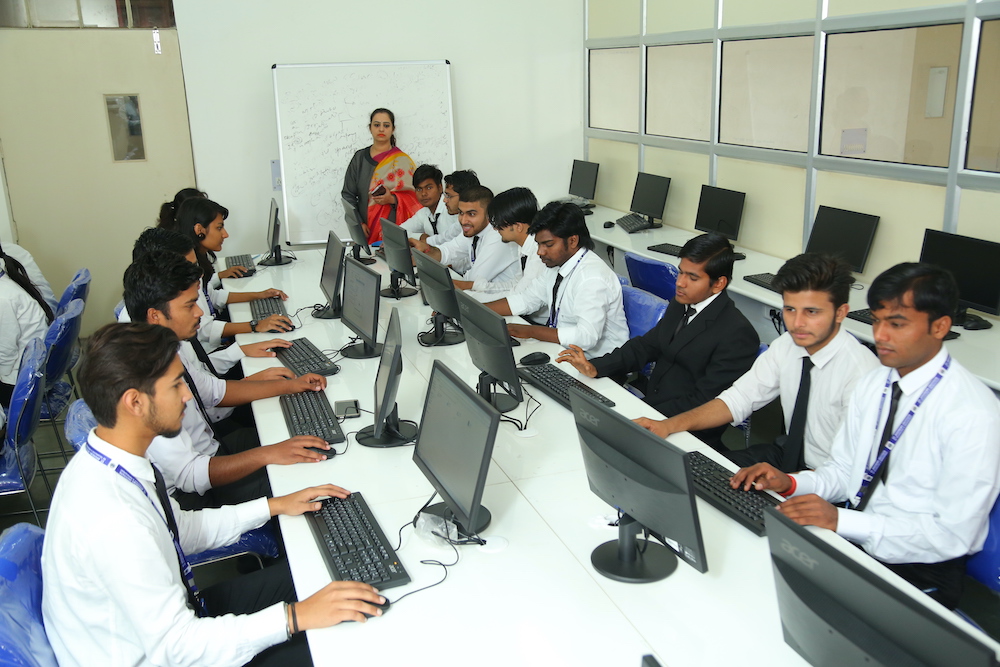
The Bachelor of Computer Applications (BCA) is a three-year undergraduate degree program that focuses on computer science and its applications. It is designed to provide a foundation in computer science and information technology, equipping students with essential skills for the IT industry.
1. Course Duration
- Duration: 3 years
- Structure: Divided into 6 semesters
2. Eligibility Criteria
- Academic Qualification: Completion of 10+2 from a recognized board
- Minimum Marks: Typically 50% aggregate in 10+2
- Preferred Background: Mathematics or Computer Science as subjects in 10+2 (varies by institution)
3. Core Subjects and Curriculum
- Programming Languages: C, C++, Java, Python
- Database Management Systems: SQL, Oracle
- Web Technologies: HTML, CSS, JavaScript, PHP
- Computer Networks: Networking principles, protocols, and security
- Software Engineering: System analysis, design, and development
- Operating Systems: Windows, Linux
- Mathematics: Discrete Mathematics, Probability, Statistics
- Data Structures and Algorithms
- Other Key Areas: Mobile app development, Cloud computing, Artificial Intelligence
4. Skills Developed
- Technical Skills: Proficiency in programming, software development, database management, web development
- Analytical Skills: Problem-solving, logical reasoning, algorithmic thinking
- Soft Skills: Communication, teamwork, project management
5. Career Prospects
- Job Roles: Software Developer, Web Developer, System Analyst, Database Administrator, Network Engineer, IT Support, Data Scientist
- Employers: IT companies, Tech startups, MNCs, Government departments, Financial institutions, Educational institutions
6. Further Studies
- Advanced Degrees: Master of Computer Applications (MCA), Master of Business Administration (MBA) with a focus on Information Technology, M.Sc. in Computer Science
- Certifications: Specialized certifications in cybersecurity, cloud computing, data science, and more
7. Top Colleges Offering BCA in India
- Christ University, Bangalore
- St. Andrews Institute of Technology and Management, Gurgaon
- Loyola College, Chennai
- Madras Christian College, Chennai
8. Admission Process
- Entrance Exams: Some colleges conduct entrance exams (e.g., IPU CET, SET, SUAT)
- Merit-Based: Based on 10+2 marks
- Personal Interview: Some institutions may conduct personal interviews or group discussions
9. Fee Structure
- Public Institutions: ₹20,000 – ₹50,000 per year
- Private Institutions: ₹50,000 – ₹2,00,000 per year
BCA Course Objectives and Highlights

Course Objectives
Foundational Knowledge
Provide students with a comprehensive understanding of the principles and practices of computer applications.
Technical Proficiency
Equip students with technical skills in programming, software development, database management, and web development.
Problem-Solving Abilities
Develop analytical and problem-solving skills to address complex computing challenges.
Industry Readiness
Prepare students for careers in the IT industry by providing practical experience through projects, internships, and industry exposure.
Continuous Learning
Encourage lifelong learning and adaptation to new technologies and methodologies in the ever-evolving field of computer science.
Ethical Practices
Instill a sense of professional ethics, responsibility, and social awareness in the practice of computer applications.
Course Highlights
Comprehensive Curriculum:
In-depth courses covering programming languages, database management, web technologies, computer networks, software engineering, operating systems, and more.
Hands-on Learning:
Practical sessions, lab work, and project-based learning to reinforce theoretical knowledge with real-world application.
Industry Exposure:
Internships, workshops, and seminars conducted by industry experts to bridge the gap between academia and the IT industry.
Modern Infrastructure:
Access to state-of-the-art computer labs, libraries, and other resources to support effective learning and research.
Experienced Faculty:
Guidance from highly qualified and experienced faculty members with expertise in various domains of computer science.
Career Opportunities:
Strong placement support and career guidance to help students secure jobs in reputed IT companies and organizations.
Skill Development:
Focus on developing soft skills such as communication, teamwork, and project management, essential for professional success.
Extracurricular Activities:
Participation in coding competitions, hackathons, and tech clubs to enhance technical skills and foster innovation.
Specializations and Electives:
Options to specialize in areas such as cybersecurity, data science, artificial intelligence, and mobile application development.
Global Perspective:
Opportunities for international collaborations, exchange programs, and exposure to global IT practices.
Eligibility Criteria for BCA Admission
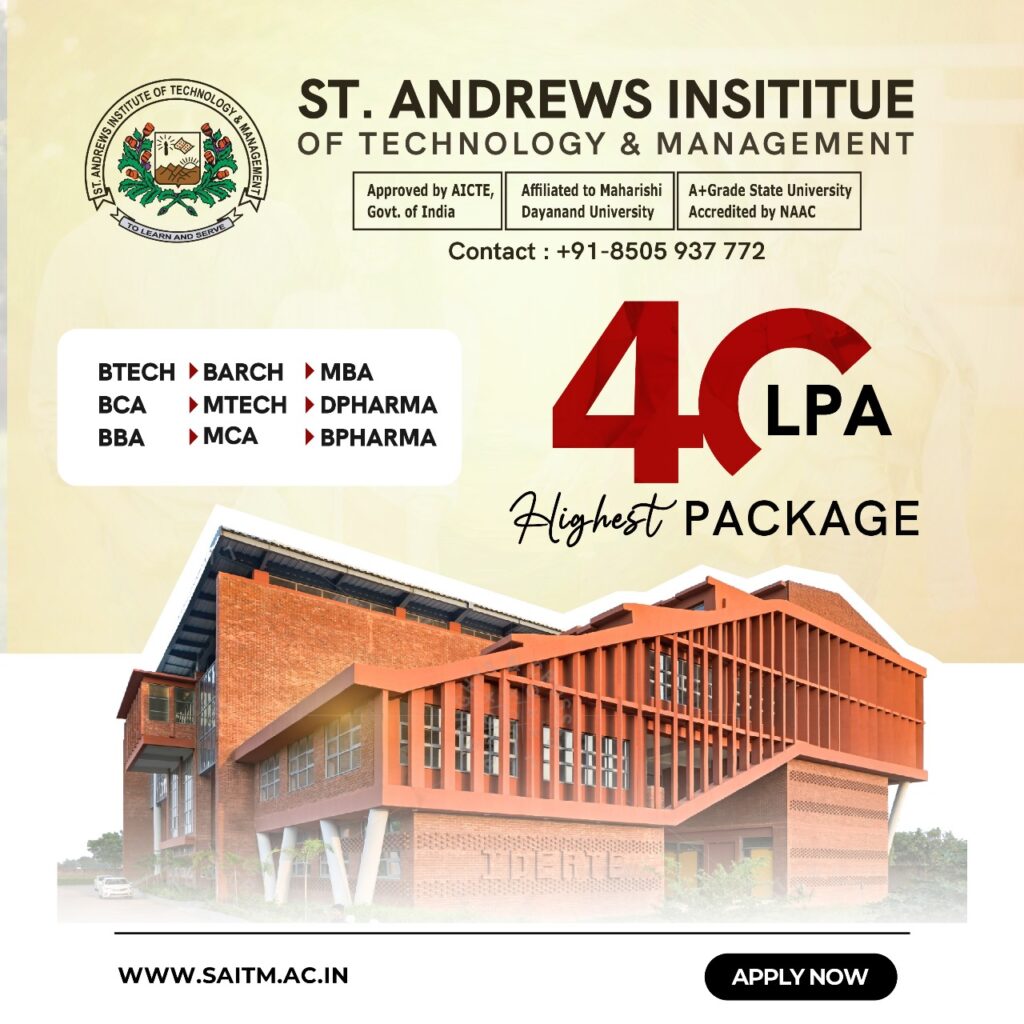
Basic Eligibility Criteria for BCA Admission
Academic Qualification
- Education Level: Completion of 10+2 (or equivalent) from a recognized board.
- Minimum Marks: Typically 50% aggregate in 10+2. Some institutions may have a different requirement (e.g., 45% for reserved categories).
Subject Requirements
- Preferred Subjects: Mathematics or Computer Science as one of the subjects in 10+2 (requirements may vary by institution).
- Alternative Subjects: Some institutions accept students from any stream (Science, Commerce, Arts) provided they meet the minimum marks criteria.
Entrance Exams
- Institution-Specific Exams: Some colleges and universities conduct their own entrance exams (e.g., IPU CET, SET, SUAT).
- National/State-Level Exams: Certain states may have their own entrance exams for BCA admissions (e.g., MAH BCA CET).
Age Limit
- Minimum Age: Usually 17 years at the time of admission.
- Maximum Age: Some institutions may have an upper age limit, typically around 22-25 years (age limits vary by institution).
Other Criteria
- English Proficiency: Proficiency in English may be required as the medium of instruction is often English.
- Personal Interview: Some institutions may conduct personal interviews or group discussions as part of the admission process.
- Reservation Policy: Reserved category students (SC/ST/OBC) may have relaxation in marks and age criteria as per government regulations.
Documents Required for BCA Admission
10th and 12th Mark Sheets: Proof of academic qualifications.
Transfer Certificate: From the last attended institution.
Character Certificate: From the last attended institution.
Caste Certificate: If applicable, for reserved category students.
Domicile Certificate: If applicable, for state quota seats.
Passport-sized Photographs: Recent photographs as per institution requirements.
BCA Admission Process

1. Application Form Submission
Online Application: Most institutions have an online application process. Candidates need to fill out the application form available on the college or university website.
Offline Application: Some institutions may still accept offline applications where forms can be obtained from the college campus and submitted in person.
2. Entrance Exam (If Applicable)
Institution-Specific Exams: Candidates may need to appear for entrance exams conducted by specific institutions (e.g., IPU CET, SUAT).
National/State-Level Exams: Some states may have their own entrance exams for BCA admissions (e.g., MAH BCA CET).
Exam Syllabus: Typically includes sections on mathematics, logical reasoning, English language proficiency, and computer science basics.
3. Merit-Based Admission
10+2 Marks: Some institutions admit students based on their performance in the 10+2 examinations.
Cut-off Lists: Institutions may release cut-off lists based on 10+2 marks, and students meeting the cut-off are eligible for admission.
4. Counseling Process (If Applicable)
Counseling Sessions: For institutions with entrance exams, successful candidates are called for counseling sessions where they can choose their preferred college and course based on their rank and availability.
Document Verification: During counseling, students need to present their original documents for verification.
5. Personal Interview and Group Discussion (If Applicable)
Personal Interview: Some institutions may conduct personal interviews to assess the candidate’s suitability for the course.
Group Discussion: In some cases, group discussions may also be part of the selection process.
6. Final Admission
Provisional Admission: Based on the entrance exam scores, merit list, and/or interview performance, institutions offer provisional admission to selected candidates.
Fee Payment: Candidates must pay the admission fee to confirm their seat. The fee structure varies by institution.
Submission of Documents: Candidates need to submit all required documents, including mark sheets, transfer certificates, character certificates, and other relevant documents.
7. Confirmation of Admission
Admission Letter: Once all formalities are completed, the institution issues an official admission letter to the candidate.
Orientation: Some institutions conduct orientation programs for new students to familiarize them with the campus, faculty, and course structure.
BCA Course Fee Structure in Government College
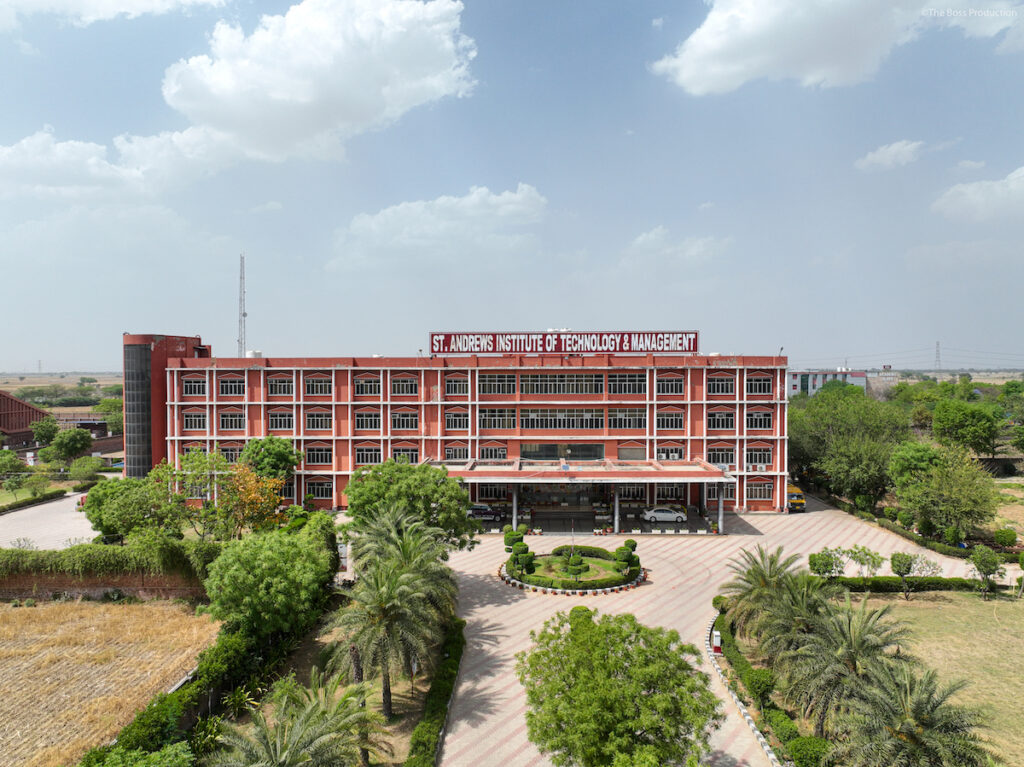
The BCA Course Fees for the Bachelor of Computer Applications (BCA) in government colleges in India are typically lower compared to private institutions. The exact tuition fees can vary depending on the specific college and its location.
Below is a general overview of the BCA course fee structure in government colleges:
General Fee Components
- Tuition Fee: The primary fee for attending the course.
- Examination Fee: Charges for semester or annual exams.
- Library Fee: Access to library resources.
- Laboratory Fee: Usage of computer labs and other facilities.
- Miscellaneous Fees: Includes sports, cultural activities, and other administrative costs.
Average Fee Range
- Per Year: ₹10,000 to ₹50,000
- Total for 3 Years: ₹30,000 to ₹1,50,000
Examples of Government Colleges and Their Fee Structure
- Delhi University (DU)
- Approximate Fee: ₹8,000 to ₹20,000 per year
- Pune University (Savitribai Phule Pune University)
- Approximate Fee: ₹15,000 to ₹30,000 per year
Additional Costs
- Hostel Fees: If opting for on-campus accommodation, additional charges for hostel facilities ranging from ₹10,000 to ₹40,000 per year.
- Books and Supplies: Estimated cost of ₹5,000 to ₹10,000 per year.
- Other Expenses: Miscellaneous costs such as transportation, food, and personal expenses.
Financial Aid and Scholarships
- Government Scholarships: Various state and central government scholarships are available for eligible students.
- Institutional Scholarships: Some colleges offer merit-based or need-based scholarships.
- Reserved Category Benefits: Fee concessions for students belonging to SC/ST/OBC categories as per government norms.
Private College Fees for BCA Course

The BCA Course Fees in private colleges vary widely depending on the reputation, location, and facilities of the institution. Private colleges generally charge higher fees compared to government colleges, offering more extensive infrastructure and additional services.
Below is an overview of the typical fee structure in private colleges:
General Fee Components:
Tuition Fee: Primary fee for the academic program.
Examination Fee: Charges for semester or annual exams.
Library Fee: Access to library resources.
Laboratory Fee: Usage of computer labs and other facilities.
Miscellaneous Fees: Includes sports, cultural activities, and other administrative costs.
Development Fee: For the maintenance and development of college infrastructure.
Admission Fee: One-time fee at the time of admission.
Average Fee Range:
- Per Year: ₹50,000 to ₹2,50,000
- Total for 3 Years: ₹1,50,000 to ₹7,50,000
Examples of Private Colleges and Their Fee Structure
Christ University, Bangalore
- Approximate Fee: ₹1,20,000 to ₹1,50,000 per year
St. Andrews Institute of Technology and Management (SAITM), Gurgaon
- Approximate Fee: ₹78,500 per year
St. Xavier’s College, Mumbai
- Approximate Fee: ₹50,000 to ₹80,000 per year
Additional Costs:
- Hostel Fees: On-campus accommodation costs ranging from ₹50,000 to ₹1,50,000 per year.
- Books and Supplies: Estimated cost of ₹10,000 to ₹20,000 per year.
- Other Expenses: Miscellaneous costs such as transportation, food, and personal expenses.
Financial Aid and Scholarships:
Merit-based Scholarships: Many private colleges offer scholarships based on academic performance.
Need-based Scholarships: Financial aid for students from economically weaker sections.
Sports and Extracurricular Scholarships: For students with exceptional achievements in sports or other activities.
Corporate Scholarships: Some colleges have tie-ups with corporations that offer scholarships to deserving students.
BCA Course Fees in Delhi NCR

Government colleges in Delhi NCR generally offer the BCA course at a much more affordable fee compared to private institutions. Understanding the BCA Course Fees in both government and private colleges is important for financial planning.
Below is an overview of the BCA fee structure for some of the prominent government colleges offering the BCA course in the Delhi NCR region:
University of Delhi (DU)
- Colleges: Various constituent colleges of Delhi University offer BCA or equivalent courses such as B.Sc. Computer Science.
- Approximate Fee: ₹10,000 to ₹25,000 per year
St. Andrews Institute of Technology and Management (SAITM), Gurgaon
- Course: Bachelor of Computer Applications (BCA)
- Approximate Fee: ₹78,500 Per Year
Guru Gobind Singh Indraprastha University (GGSIPU)
- Affiliated Colleges: Several colleges affiliated with GGSIPU offer BCA.
- Approximate Fee: ₹40,000 to ₹60,000 per year
Jamia Millia Islamia, New Delhi
- Course: B.Sc. (Computer Science) or similar
- Approximate Fee: ₹7,000 to ₹15,000 per year
Netaji Subhas University of Technology (NSUT)
- Course: BCA
- Approximate Fee: ₹35,000 to ₹50,000 per year
Ambedkar Institute of Technology
- Course: BCA
- Approximate Fee: ₹15,000 to ₹30,000 per year
BCA Government Colleges in India
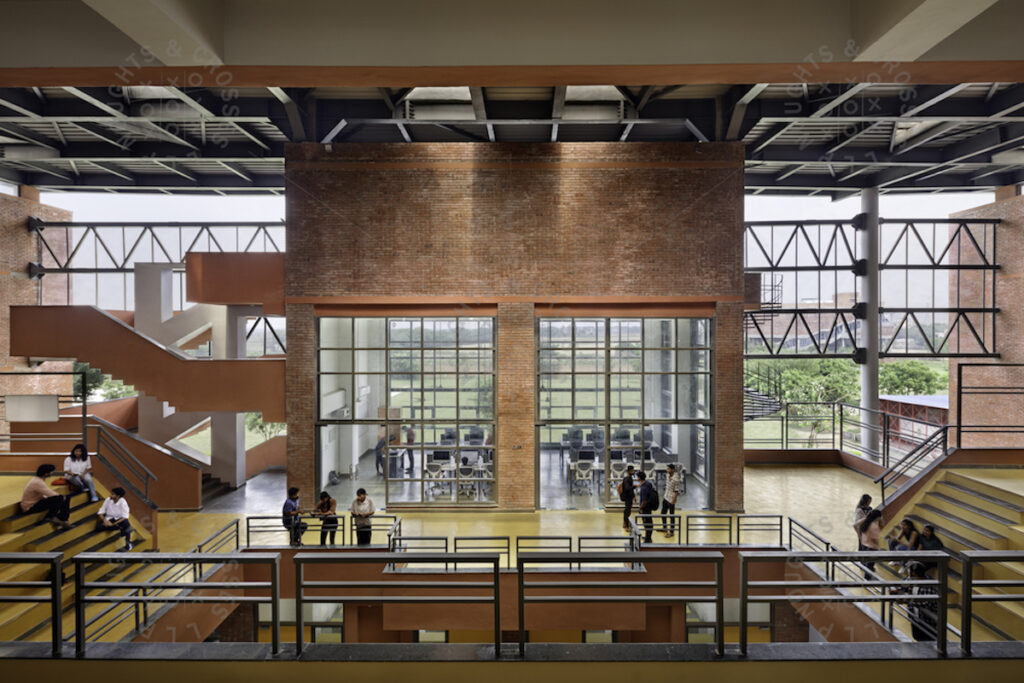
Here are some of the top BCA colleges in India offering Bachelor of Computer Applications (BCA) programs:
Guru Gobind Singh Indraprastha University (GGSIPU), Delhi
- Known for its rigorous academic curriculum and excellent placement records.
- Offers a well-structured BCA program with strong industry connections.
St. Andrews Institute of Technology and Management {SAITM}, Gurgaon
- Offers a BCA program with a strong focus on IT and computer applications.
- A BCA college is known for its excellent placement opportunities and industry connections.
Maharaja Sayajirao University of Baroda, Vadodara
- Offers a comprehensive BCA program with a focus on research and development.
- Provides excellent academic and extracurricular opportunities.
Punjab University, Chandigarh
- Offers a BCA program with a focus on both theoretical and practical aspects of computer applications.
- Known for its experienced faculty and strong academic environment.
Jamia Millia Islamia, New Delhi:
- Offers a dynamic BCA program with various specializations.
- Known for its excellent faculty, infrastructure, and placement support.
National Institute of Technology (NIT), Kurukshetra
- Offers a BCA program with a strong emphasis on practical skills and industry requirements.
- Renowned for its academic excellence and strong placement records.
University of Allahabad, Allahabad
- Offers a well-rounded BCA program with a focus on the latest technologies and trends.
- Known for its strong academic environment and extracurricular activities.
Babasaheb Bhimrao Ambedkar University, Lucknow
- Provides a comprehensive BCA program with a focus on practical knowledge and research.
- Offers excellent faculty and state-of-the-art infrastructure.
Kurukshetra University, Kurukshetra
- Offers a rigorous BCA program with a focus on both theoretical and practical aspects.
- Known for its strong academic environment and faculty.
University of Calcutta, Kolkata
- Offers a well-structured BCA program with a focus on industry-oriented curriculum.
- Renowned for its academic excellence and experienced faculty.
Top Private BCA Colleges in India
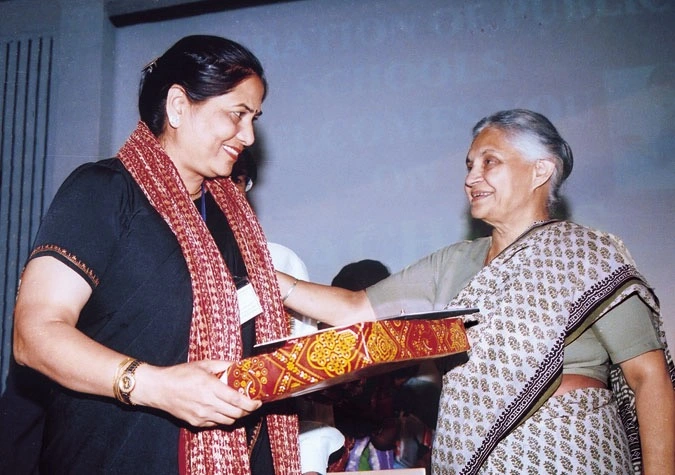
Here are some of the top private colleges in India offering BCA (Bachelor of Computer Applications) programs:
St. Andrews Institute of Technology and Management [SAITM], Gurgaon
- Renowned for its excellent faculty and state-of-the-art infrastructure.
- Offers various specializations and an industry-oriented curriculum.
Loyola College, Chennai
- Known for its academic excellence and holistic education approach.
- Provides a well-rounded curriculum and extracurricular activities.
St. Xavier’s College, Kolkata
- One of the oldest and most prestigious colleges in India.
- Offers a rigorous BCA program with an emphasis on practical knowledge.
Presidency College, Bangalore
- Offers a well-structured BCA program with a focus on the latest technologies and trends.
- Strong industry connections and placement support.
Vellore Institute of Technology (VIT), Vellore
- Known for its strong focus on research and development.
- Offers a comprehensive BCA program with excellent placement opportunities.
Xavier Institute of Computer Application (XICA), Ahmedabad
- Offers a BCA program with a focus on both theoretical and practical aspects of computer applications.
- Known for its vibrant campus life and academic excellence.
BCA Course Syllabus Semester Wise
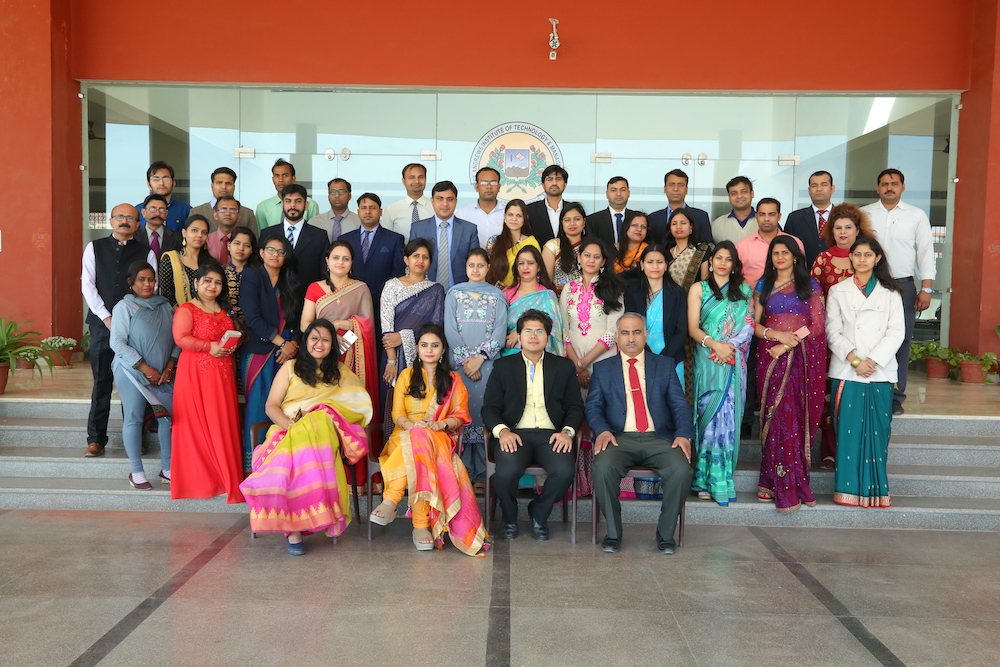
Here’s a detailed semester-wise breakdown of the BCA syllabus:
Semester 1
- Computer Fundamentals and Office Automation
- Introduction to computers, hardware, software
- Word processing, spreadsheets, presentation software
- Mathematics I
- Basic algebra, calculus, matrices, determinants
- Programming Principles and Algorithms
- Basics of programming, algorithms, flowcharts
- Business Communication
- Effective communication skills, business writing, presentations
- Digital Electronics
- Logic gates, Boolean algebra, combinational circuits
- Lab I: Office Automation and HTML
- Practical applications of office automation tools and HTML basics
Semester 2
- C Programming
- Basics of C language, data types, operators, control statements
- Mathematics II
- Advanced calculus, discrete mathematics, probability
- Organizational Behavior
- Fundamentals of organizational behavior, motivation, leadership
- Data Structures
- Arrays, linked lists, stacks, queues, trees, graphs
- Financial Accounting
- Basics of financial accounting, ledger, trial balance, final accounts
- Lab II: Data Structures and C Programming
- Practical applications of data structures and C programming concepts
Semester 3
- Object-Oriented Programming in C++
- Basics of OOP, classes, objects, inheritance, polymorphism
- Operating Systems
- Fundamentals of operating systems, processes, memory management
- Database Management Systems
- Basics of DBMS, SQL, normalization, transactions
- Software Engineering
- Software development lifecycle, methodologies, project management
- Computer Networks
- Network fundamentals, OSI model, TCP/IP, network security
- Lab III: C++ Programming and DBMS
- Practical applications of C++ programming and DBMS concepts
Semester 4
- Java Programming
- Basics of Java, OOP concepts, exception handling, multithreading
- Web Technology
- HTML, CSS, JavaScript, PHP, web servers
- Computer Graphics
- Basics of computer graphics, algorithms, transformations
- Microprocessor and Assembly Language
- Microprocessor architecture, assembly language programming
- Elective I (Choose any one)
- Artificial Intelligence
- Data Mining
- Cyber Security
- Lab IV: Java Programming and Web Technology
- Practical applications of Java programming and web technology
Semester 5
- Python Programming
- Basics of Python, data structures, functions, modules
- Software Testing
- Testing methodologies, types of testing, test case design
- Mobile Application Development
- Basics of mobile app development, Android/iOS development
- Network Security
- Fundamentals of network security, cryptography, firewalls
- Elective II (Choose any one)
- Cloud Computing
- Machine Learning
- Big Data
- Lab V: Python Programming and Mobile Application Development
- Practical applications of Python programming and mobile app development
Semester 6
- Project Work
- Implementation of a software project, documentation, and presentation
- Internship/Industrial Training
- Real-world experience in the industry, project work, report submission
- Elective III (Choose any one)
- Internet of Things (IoT)
- Blockchain Technology
- Advanced Database Management Systems
BCA Specializations

The Bachelor of Computer Applications (BCA) program often allows students to specialize in various areas of computer science and information technology.
Here are some common specializations available in BCA courses:
1. Software Development
- Focuses on software engineering principles, application development, software project management, and various programming languages.
2. Web Development
- Emphasizes web design, web programming, web frameworks, and web technologies like HTML, CSS, JavaScript, and PHP.
3. Mobile Application Development
- Covers the development of mobile applications for platforms such as Android and iOS, including learning programming languages like Java and Swift.
4. Network Administration
- Focuses on network infrastructure, network management, network security, and related technologies such as routers, switches, and firewalls.
5. Database Management
- Involves learning about database design, SQL, database administration, and data warehousing.
6. Cyber Security
- Covers topics like information security, network security, ethical hacking, cryptography, and security protocols.
7. Artificial Intelligence and Machine Learning
- Involves studying AI concepts, machine learning algorithms, neural networks, natural language processing, and robotics.
8. Cloud Computing
- Focuses on cloud services, cloud architecture, cloud storage, virtualization, and cloud security.
9. Internet of Things (IoT)
- Covers IoT architecture, sensor technology, embedded systems, and IoT security.
10. Data Science and Analytics
- Emphasizes data analysis, data visualization, statistical methods, big data technologies, and tools like R and Python for data analysis.
11. Game Development
- Involves learning about game design, game programming, graphics programming, and using game development platforms like Unity and Unreal Engine.
12. Information Systems Management
- Focuses on the management of information systems, IT project management, business process management, and ERP systems.
13. Multimedia and Animation
- Covers digital graphics, animation techniques, multimedia systems, and tools like Adobe Creative Suite.
14. E-commerce and Digital Marketing
- Emphasizes online business models, e-commerce platforms, digital marketing strategies, SEO, and social media marketing.
15. Blockchain Technology
- Involves learning about blockchain fundamentals, cryptocurrency, smart contracts, and decentralized applications (dApps).
BCA Entrance Exams
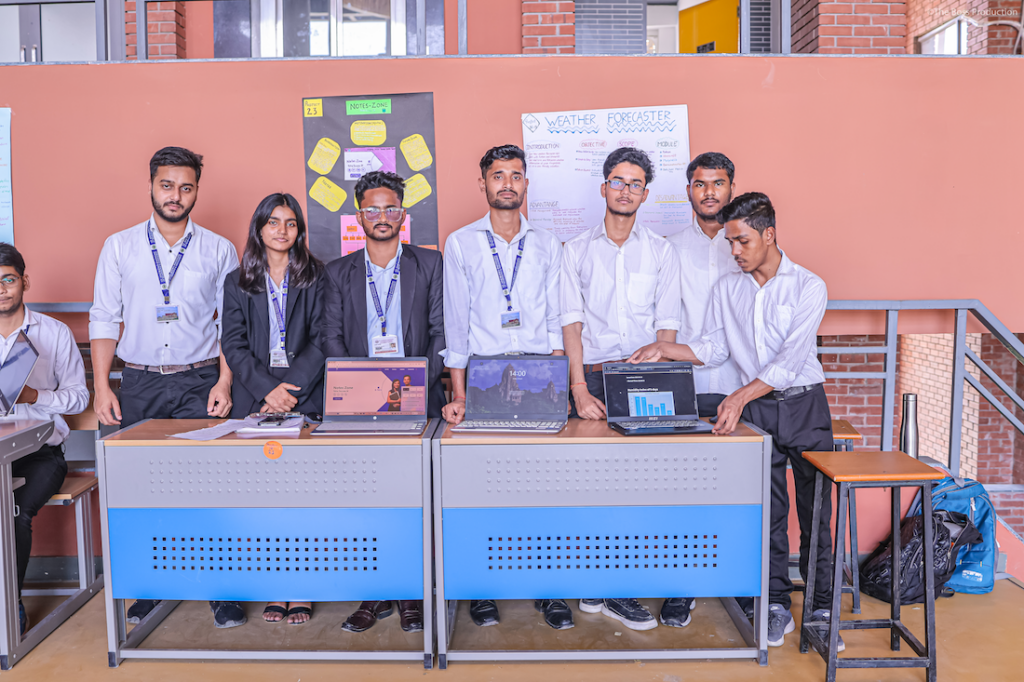
Here are some common entrance exams for admission to the Bachelor of Computer Applications (BCA) programs in India:
National Level Entrance Exams
IPU CET (Indraprastha University Common Entrance Test)
- Conducted by: Guru Gobind Singh Indraprastha University
- Eligibility: 10+2 with a minimum of 50% marks and Mathematics or Computer Science as a subject.
AIMA UGAT (Under Graduate Aptitude Test)
- Conducted by: All India Management Association
- Eligibility: 10+2 in any stream.
State Level Entrance Exams
UPSEE (Uttar Pradesh State Entrance Examination)
- Conducted by: Dr. A.P.J. Abdul Kalam Technical University
- Eligibility: 10+2 with Mathematics as a subject.
Maharashtra CET (Common Entrance Test)
- Conducted by: Directorate of Technical Education, Maharashtra
- Eligibility: 10+2 with Mathematics as a subject.
University Specific Entrance Exams
BHU UET (Banaras Hindu University Undergraduate Entrance Test)
- Conducted by: Banaras Hindu University
- Eligibility: 10+2 with Mathematics as a subject.
CUCET (Central Universities Common Entrance Test)
- Conducted by: Participating Central Universities
- Eligibility: 10+2 in any stream.
LUCSAT (Lucknow University Computer Science Admission Test)
- Conducted by: University of Lucknow
- Eligibility: 10+2 with Mathematics or Computer Science/Computer Application as a subject.
BCA Online Admission Process

The online admission process for the Bachelor of Computer Applications (BCA) typically involves several steps.
Here’s a comprehensive guide to the BCA online admission process:
1. Research and Selection of Colleges
Identify Colleges: Research and shortlist the colleges or universities offering BCA programs that meet your preferences for location, ranking, and specialization.
Check Eligibility: Review the BCA eligibility criteria for each institution, such as minimum marks in 10+2, required subjects, and entrance exams.
2. Entrance Exams
Register for Entrance Exams: If required, register for the relevant entrance exams by filling out the online application forms on the official websites.
Prepare for Exams: Study the syllabus, practice previous years’ question papers, and take mock tests.
Appear for Exams: Take the entrance exams as per the scheduled dates.
3. Application Process
Visit Official Websites: Go to the official websites of the shortlisted colleges or universities.
Online Registration: Create an account on the admission portal by providing your email ID and mobile number.
Fill Application Form: Complete the online application form with personal details, educational qualifications, and other required information.
Upload Documents: Upload scanned copies of required documents, such as:
- Passport-sized photograph
- Signature
- 10th and 12th mark sheets
- Entrance exam scorecard (if applicable)
- Caste certificate (if applicable)
- ID proof (e.g., Aadhar card, passport)
4. Payment of Application Fee
Pay Application Fee: Pay the application fee using available online payment methods such as credit/debit card, net banking, or UPI.
Confirmation: After payment, a confirmation page or receipt is generated. Save or print this for future reference.
5. Admission Merit List
Entrance Exam Results: If the admission is based on an entrance exam, check the results on the official website.
Merit List: Colleges release a merit list based on entrance exam scores or 10+2 marks. Check the merit list on the college’s website.
6. Counseling and Seat Allotment
Counseling Registration: If applicable, register for the counseling process on the respective college’s portal.
Choice Filling: Select preferred courses and colleges during the counseling process.
Seat Allotment: Based on merit and preferences, seats are allotted to candidates. Check the seat allotment results.
7. Document Verification
Verify Documents: Attend the document verification session either online or at the college campus. Ensure all original documents are available for verification.
Submit Fees: Pay the admission fee to confirm your seat.
8. Admission Confirmation
Provisional Admission Letter: Receive a provisional admission letter from the college after document verification and fee payment.
Final Admission: Once all processes are complete, you will receive a final admission letter.
Career Opportunities and Salary after BCA
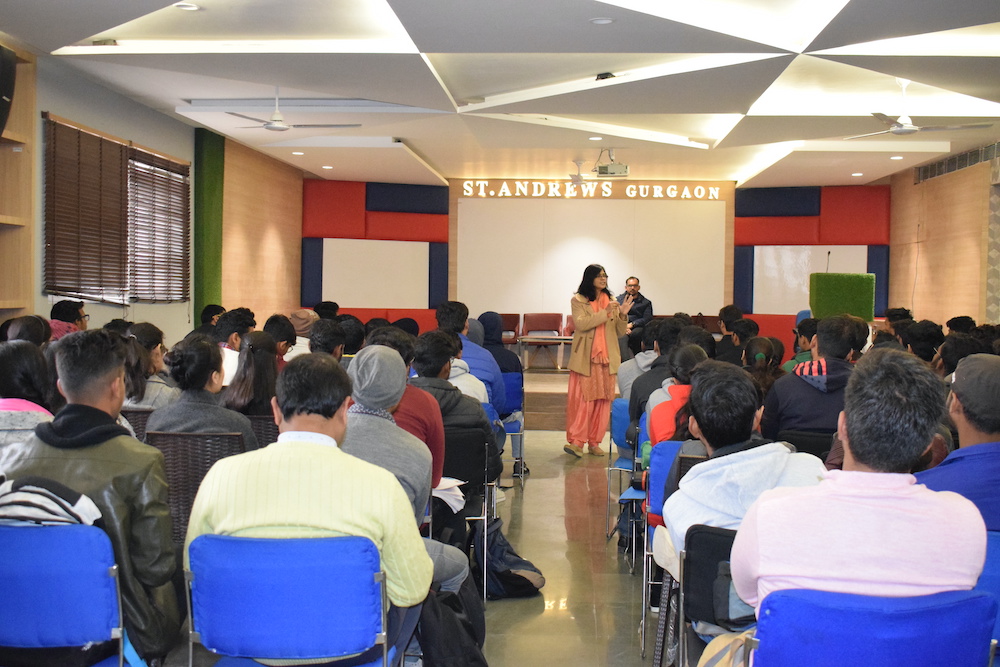
BCA Jobs and Salary
A Bachelor of Computer Applications (BCA) degree opens up various career opportunities in the IT industry and related fields.
Here’s an overview of potential job roles, their responsibilities, and the average BCA salary range for graduates:
Job Roles and Responsibilities
Software Developer
Responsibilities: Designing, coding, and testing software applications. Collaborating with other developers and stakeholders to create functional software solutions.
Average Salary: ₹3-6 lakhs per annum (entry-level)
Web Developer
Responsibilities: Creating and maintaining websites. Working with web technologies like HTML, CSS, JavaScript, and backend languages such as PHP, Python, or Ruby.
Average Salary: ₹2.5-5 lakhs per annum (entry-level)
System Analyst
Responsibilities: Analyzing and designing information systems to solve business problems. Liaising between business stakeholders and IT teams.
Average Salary: ₹4-7 lakhs per annum (entry-level)
Database Administrator (DBA)
Responsibilities: Managing databases, ensuring data integrity, security, and availability. Performing database maintenance and optimization.
Average Salary: ₹3-6 lakhs per annum (entry-level)
Network Administrator
Responsibilities: Managing and maintaining computer networks, troubleshooting network issues, and ensuring network security.
Average Salary: ₹3-5 lakhs per annum (entry-level)
Technical Support Specialist
Responsibilities: Providing technical assistance and support for software and hardware issues. Resolving customer queries and issues.
Average Salary: ₹2.5-4 lakhs per annum (entry-level)
Data Analyst
Responsibilities: Collecting, processing, and performing statistical analyses on data. Creating reports and data visualizations to help businesses make data-driven decisions.
Average Salary: ₹3-5 lakhs per annum (entry-level)
Mobile Application Developer
Responsibilities: Designing and developing applications for mobile devices. Working with platforms like Android and iOS.
Average Salary: ₹3-6 lakhs per annum (entry-level)
Cyber Security Analyst
Responsibilities: Protecting an organization’s computer systems and networks from cyber threats. Implementing security measures and conducting vulnerability assessments.
Average Salary: ₹4-7 lakhs per annum (entry-level)
Cloud Solutions Architect
Responsibilities: Designing and implementing cloud-based solutions. Managing cloud infrastructure and services.
Average Salary: ₹5-8 lakhs per annum (entry-level)
Advanced Career Opportunities

Project Manager
- Responsibilities: Planning, executing, and closing projects. Managing project teams, budgets, and timelines.
- Average Salary: ₹8-12 lakhs per annum
IT Consultant
- Responsibilities: Advising organizations on how best to use IT to achieve their business objectives. Providing strategic guidance on IT infrastructure and processes.
- Average Salary: ₹7-10 lakhs per annum
Business Analyst
- Responsibilities: Analyzing business processes, identifying opportunities for improvement, and implementing solutions to enhance business performance.
- Average Salary: ₹6-9 lakhs per annum
Senior Software Engineer
- Responsibilities: Leading software development projects, mentoring junior developers, and ensuring high-quality software delivery.
- Average Salary: ₹8-15 lakhs per annum
BCA Future Scope in India
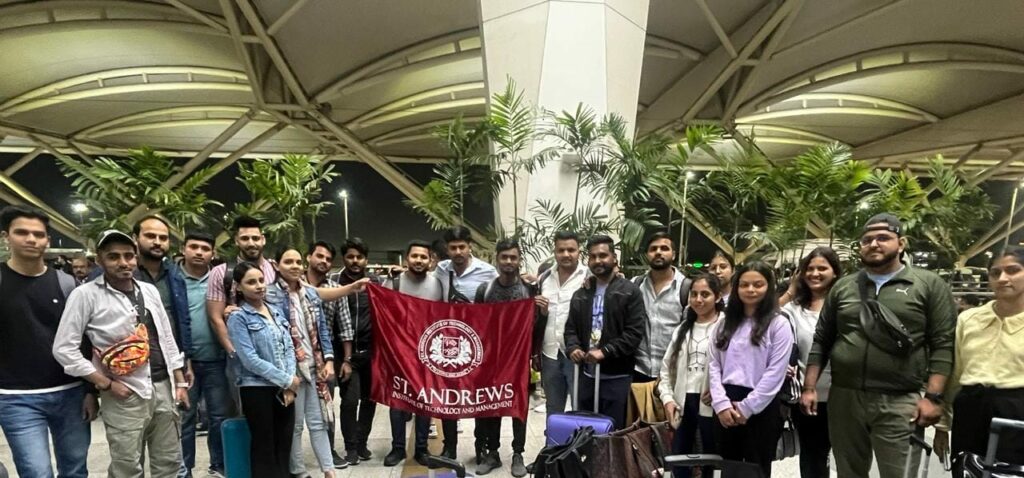
The future scope for Bachelor of Computer Applications (BCA) graduates in India is promising, given the rapid growth of the IT industry and the increasing reliance on technology across various sectors. Understanding BCA Course Fees is important for financial planning as students prepare for these lucrative career opportunities.
Here are some key areas highlighting the future scope for BCA aspirants in India:
1. Growth in the IT Industry
- Expansion of IT Services: The demand for IT services continues to grow globally and domestically, providing numerous opportunities for BCA graduates with strong programming skills in software development, IT support, and consulting.
- Startups and Tech Hubs: The rise of startups and tech hubs in cities like Bangalore, Hyderabad, Pune, and Delhi-NCR offers dynamic job opportunities for BCA graduates.
2. Emerging Technologies
- Artificial Intelligence and Machine Learning: Specializing in AI and ML can open up roles in data science, predictive modeling, and AI-driven application development.
- Cybersecurity: With increasing cyber threats, there is a significant demand for cybersecurity experts to protect digital assets.
- Blockchain Technology: Blockchain’s applications in finance, supply chain, and beyond create opportunities for specialists in this field.
- Internet of Things (IoT): IoT is expanding across various industries, including healthcare, manufacturing, and smart cities, offering roles in IoT development and management.
- Cloud Computing: The shift to cloud services and infrastructure has increased demand for cloud specialists who can design, manage, and secure cloud environments.
3. Data Science and Analytics
- Big Data Analytics: Organizations are leveraging big data for decision-making, creating a need for data analysts and data scientists to interpret and manage large datasets.
- Business Intelligence: BI professionals are in demand for their ability to transform data into actionable insights.
4. Mobile and Web Development
- App Development: The proliferation of smartphones and mobile internet has led to a high demand for mobile app developers, especially in Android and iOS platforms.
- Web Development: With businesses going digital, web developers are essential for creating and maintaining dynamic and user-friendly websites.
5. E-commerce and Digital Marketing
- E-commerce Growth: The expansion of the e-commerce sector in India creates opportunities in web development, digital marketing, and e-commerce management.
- Digital Marketing: BCA graduates with skills in SEO, SEM, content marketing, and social media can pursue lucrative careers in digital marketing.
6. Government Initiatives and Projects
- Digital India: Government initiatives like Digital India aim to improve online infrastructure and increase internet connectivity, leading to job creation in IT and related fields.
- Smart Cities Mission: The development of smart cities involves integrating ICT solutions, providing opportunities for IT professionals in urban planning and smart infrastructure projects.
7. Higher Education and Specialization
- MCA (Master of Computer Applications): Pursuing an MCA can further enhance career prospects, providing advanced knowledge and specialization in areas like software development, data science, and network management.
- MBA (Master of Business Administration): An MBA with an IT specialization can lead to managerial roles in tech companies, combining technical and business expertise.
8. Freelancing and Entrepreneurship
- Freelancing Opportunities: Many BCA graduates opt for freelancing, offering services in web development, app development, digital marketing, and more.
- Entrepreneurship: BCA graduates with entrepreneurial skills can start their own tech ventures, leveraging the knowledge gained during their studies.
Top Companies Hiring BCA Graduates
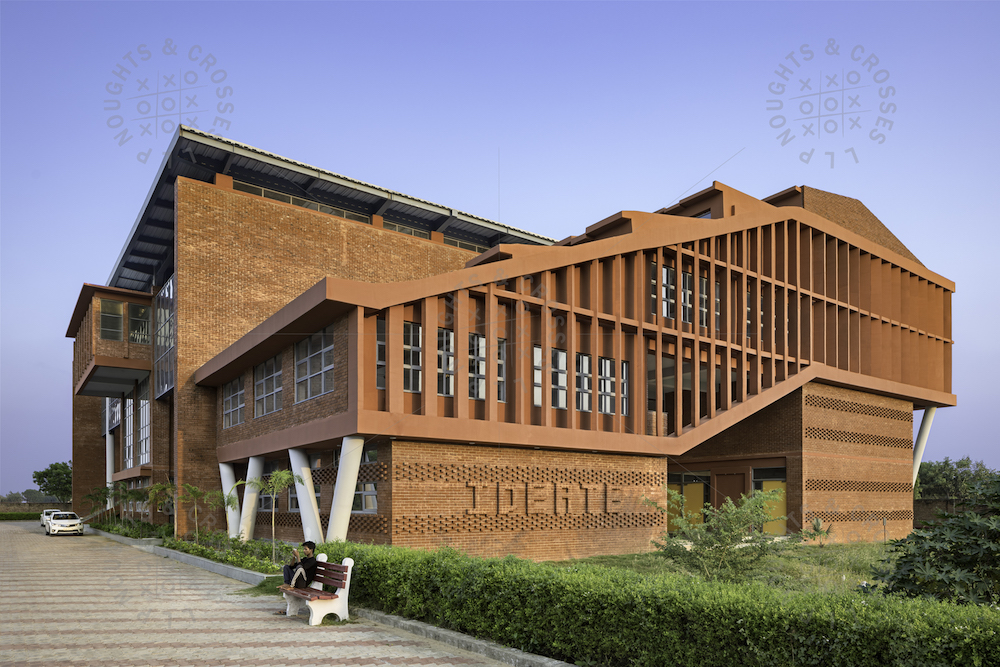
BCA graduates have a wide range of opportunities in various top companies across different sectors.
Here are some of the top BCA recruiting companies known for hiring BCA graduates in India:
IT and Software Development Companies
Tata Consultancy Services (TCS)
- Services: IT services, consulting, and business solutions.
- Roles: Software Developer, System Analyst, Network Administrator, etc.
Infosys
- Services: IT consulting, software development, and business process outsourcing.
- Roles: Software Engineer, Data Analyst, IT Support Specialist, etc.
Wipro
- Services: IT services, consulting, and business process services.
- Roles: Software Developer, Network Engineer, Cybersecurity Analyst, etc.
HCL Technologies
- Services: IT services, business process outsourcing, and consulting.
- Roles: Software Engineer, System Analyst, Technical Support, etc.
Tech Mahindra
- Services: IT services, business solutions, and consulting.
- Roles: Software Developer, Network Administrator, Technical Support Engineer, etc.
Multinational Corporations (MNCs)
IBM
- Services: IT services, consulting, and hardware.
- Roles: Software Developer, System Analyst, Database Administrator, etc.
Accenture
- Services: IT consulting, technology services, and outsourcing.
- Roles: Software Engineer, Data Analyst, IT Consultant, etc.
Cognizant
- Services: IT services, consulting, and business process outsourcing.
- Roles: Software Developer, System Analyst, Network Administrator, etc.
Capgemini
- Services: Consulting, technology services, and digital transformation.
- Roles: Software Engineer, System Analyst, IT Consultant, etc.
Microsoft
- Services: Software development, IT services, and consulting.
- Roles: Software Developer, Technical Support Engineer, IT Specialist, etc.
E-commerce and Internet Companies
Amazon
- Services: E-commerce, cloud computing, digital streaming, and AI.
- Roles: Software Developer, Data Analyst, IT Support, etc.
Flipkart
- Services: E-commerce and digital marketplace.
- Roles: Software Engineer, Data Analyst, System Administrator, etc.
Paytm
- Services: Digital payments and financial services.
- Roles: Software Developer, Data Analyst, IT Support Specialist, etc.
Technology and Engineering Companies
Dell Technologies
- Services: Computer technology, IT consulting, and hardware.
- Roles: Software Developer, Network Administrator, System Analyst, etc.
Hewlett Packard Enterprise (HPE)
- Services: IT consulting, technology services, and hardware.
- Roles: Software Engineer, System Analyst, Network Engineer, etc.
Intel
- Services: Semiconductor manufacturing and technology solutions.
- Roles: Software Developer, System Analyst, IT Support Specialist, etc.
Telecommunications Companies
Reliance Jio
- Services: Telecommunications and digital services.
- Roles: Software Developer, Network Engineer, IT Support Specialist, etc.
Bharti Airtel
- Services: Telecommunications services and digital TV.
- Roles: Software Engineer, Network Administrator, IT Specialist, etc.
Banking and Financial Services Companies
HDFC Bank
- Services: Banking and financial services.
- Roles: IT Support Specialist, Data Analyst, Software Developer, etc.
ICICI Bank
- Services: Banking and financial services.
- Roles: Software Developer, IT Support, Data Analyst, etc.
Axis Bank
- Services: Banking and financial services.
- Roles: IT Support Specialist, Software Developer, Data Analyst, etc.
Emerging Technology Companies
Zoho Corporation
- Services: Software development and cloud services.
- Roles: Software Developer, Data Analyst, IT Support Specialist, etc.
Freshworks
- Services: Customer engagement software and solutions.
- Roles: Software Developer, Data Analyst, IT Support Specialist, etc.
Zomato
- Services: Online food delivery and restaurant discovery platform.
- Roles: Software Developer, Data Analyst, IT Support Specialist, etc.
Benefits of Doing BCA Course
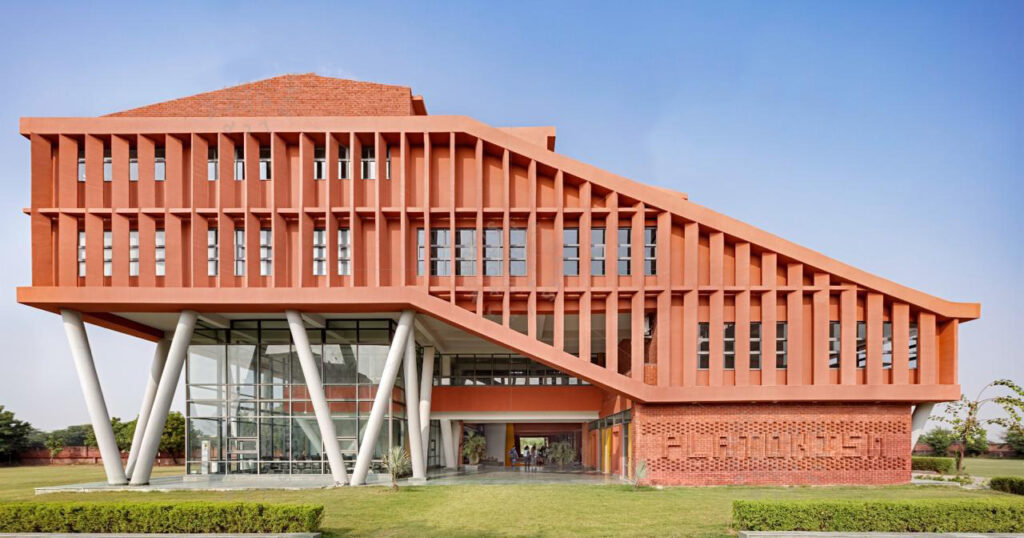
Pursuing a Bachelor of Computer Applications (BCA) offers numerous benefits, particularly for those interested in the field of information technology and computer science.
Here are some of the key benefits of doing a BCA course:
1. Foundation in Computer Applications
- Comprehensive Curriculum: The BCA course covers essential topics in computer science, including programming, database management, web development, networking, and software engineering.
- Practical Skills: Students gain hands-on experience with various programming languages, software tools, and applications, which are crucial for technical roles.
2. Career Opportunities
- Diverse Job Roles: BCA graduates can pursue careers in various fields such as software development, web development, database administration, network administration, and technical support.
- High Demand: The IT industry consistently seeks skilled professionals, providing ample job opportunities for BCA graduates.
3. Pathway to Advanced Studies
- Higher Education: BCA graduates can pursue advanced degrees such as Master of Computer Applications (MCA), Master of Science (M.Sc.) in Computer Science, or even an MBA with a specialization in IT.
- Specializations: Further studies allow BCA graduates to specialize in emerging technologies like artificial intelligence, machine learning, data science, cybersecurity, and cloud computing.
4. Skill Development
- Technical Skills: BCA programs emphasize the development of technical skills in programming, software development, system analysis, and network management.
- Soft Skills: Many BCA programs also focus on improving communication, teamwork, and problem-solving skills, which are valuable in any professional setting.
5. Industry-Relevant Curriculum
- Updated Syllabus: The BCA syllabus is regularly updated to include the latest technological advancements and industry practices, ensuring that graduates are well-prepared for the job market.
- Internships and Projects: Many BCA programs include internships and project work, providing students with real-world experience and exposure to industry standards.
6. Flexibility and Adaptability
- Versatile Career Options: The skills acquired during a BCA program are applicable in various industries, including finance, healthcare, education, and e-commerce.
- Freelancing Opportunities: BCA graduates can also work as freelancers, offering services in web development, app development, digital marketing, and more.
7. Entrepreneurial Opportunities
- Start Your Own Business: With a solid foundation in computer applications, BCA graduates can start their own tech ventures, such as software development companies, IT consulting firms, or digital marketing agencies.
- Innovation and Creativity: The course encourages innovative thinking and problem-solving, essential for entrepreneurship.
8. Affordability and Accessibility
- Cost-Effective: Compared to other professional degrees, BCA is relatively affordable and provides good returns on investment through lucrative job opportunities.
- Wide Availability: Many universities and colleges across India offer BCA programs, making it accessible to students from various regions.
9. Preparation for Certifications
- Industry Certifications: The knowledge gained during a BCA course can help students prepare for various industry certifications like Cisco Certified Network Associate (CCNA), Microsoft Certified Solutions Associate (MCSA), and Oracle Certified Associate (OCA).
- Enhanced Employability: Holding industry-recognized certifications along with a BCA degree can significantly enhance employability and career prospects.
10. Global Opportunities
- Work Abroad: The IT skills acquired during a BCA program are in demand worldwide, providing opportunities to work abroad in countries with a strong tech industry presence.
- Higher Studies Abroad: BCA graduates can also pursue higher education in reputed international universities, further expanding their career prospects.
Required Skills for BCA Courses

To excel in a Bachelor of Computer Applications (BCA) course, certain skills and qualities are beneficial. These skills not only help students perform well academically but also prepare them for successful careers in the IT industry.
Here are the key skills required for a BCA course:
1. Technical Skills
- Programming Languages: Knowledge of programming languages such as C, C++, Java, Python, and JavaScript is crucial.
- Database Management: Understanding of database management systems (DBMS) and SQL.
- Web Development: Familiarity with web technologies like HTML, CSS, JavaScript, and frameworks like Angular or React.
- Networking: Basic knowledge of computer networks, including concepts like LAN, WAN, protocols, and network security.
- Operating Systems: Understanding of various operating systems like Windows, Linux, and their functionalities.
2. Analytical and Problem-Solving Skills
- Logical Thinking: Ability to approach problems logically and break them down into smaller, manageable components.
- Problem-Solving: Strong problem-solving skills to identify issues and develop effective solutions.
3. Mathematical Aptitude
- Mathematics: Good grasp of mathematical concepts, particularly discrete mathematics, algebra, and calculus, which are often used in computer science.
- Statistics: Basic understanding of statistics for data analysis and algorithm development.
4. Communication Skills
- Verbal Communication: Ability to articulate ideas and technical concepts clearly and effectively.
- Written Communication: Proficiency in writing reports, documentation, and code comments clearly and concisely.
5. Teamwork and Collaboration
- Collaboration: Ability to work well in a team environment, contributing to group projects and collaborating with peers.
- Interpersonal Skills: Strong interpersonal skills to interact effectively with team members, instructors, and industry professionals.
6. Adaptability and Continuous Learning
- Adaptability: Willingness to adapt to new technologies, tools, and methodologies in the rapidly evolving field of computer science.
- Continuous Learning: Eagerness to learn continuously and stay updated with the latest trends and advancements in technology.
7. Time Management and Organization
- Time Management: Ability to manage time effectively, prioritize tasks, and meet deadlines.
- Organizational Skills: Being organized in managing coursework, projects, and personal study time.
8. Attention to Detail
- Accuracy: Attention to detail to ensure accuracy in coding, debugging, and problem-solving.
- Thoroughness: Thorough approach to testing and validating software solutions.
9. Creativity and Innovation
- Creativity: Ability to think creatively and come up with innovative solutions to technical challenges.
- Innovation: Willingness to explore new ideas and approaches in software development and problem-solving.
10. Technical Tools Proficiency
- Software Tools: Familiarity with integrated development environments (IDEs) like Visual Studio Code, Eclipse, or PyCharm.
- Version Control Systems: Knowledge of version control systems like Git for managing code repositories.
- Development Tools: Experience with development tools and platforms used in web and mobile application development.
11. Ethical Understanding
- Ethics in Technology: Understanding the ethical implications of technology and adhering to ethical standards in software development and data management.
FAQs
What is the qualification for BCA?
To pursue BCA, candidates typically need to have completed their 10+2 education with a minimum of 50% marks, with Mathematics or Computer Science as one of the subjects. Admission criteria may vary by institution. Additionally, understanding the BCA Course Fees is essential for financial planning before applying.
Is BCA a good course?
Yes, a BCA is a good course for those interested in computer science and IT. It provides foundational knowledge in programming, software development, and computer applications, offering diverse career opportunities in tech fields such as software development, systems administration, and data analysis. Additionally, knowing the BCA Course Fees is important for financial planning and making an informed decision about the program.
Which entrance exam is needed for BCA?
The entrance exam requirement for BCA varies by institution. Some universities conduct their own entrance exams, such as IPU CET for Guru Gobind Singh Indraprastha University. Other top BCA colleges may admit students based on merit in the 10+2 examination. Additionally, understanding the BCA Course Fees is crucial for financial planning when selecting a college.
How hard is BCA?
The difficulty of a BCA course depends on the student’s background and interest in computer science and IT. With dedication and consistent study, students with a basic understanding of mathematics and computer science can manage the coursework. Practical assignments and projects can also aid in better understanding. Additionally, considering the BCA Course Fees is essential for planning and budgeting throughout the program.
Is there a good career after BCA?
Yes, a BCA degree offers a good career path. BCA students can pursue various roles, including software developer, web designer, system analyst, network administrator, and database manager. Further studies, like an MCA (Master of Computer Applications) or MBA, can enhance career prospects and open up higher-level positions in the IT industry. Additionally, understanding the BCA Course Fees is important for financial planning throughout the program.
What is the course duration of BCA?
The course duration of a BCA program is typically three years, divided into six semesters.
What job can I get after BCA?
After completing a BCA, you can pursue various job roles such as:
- Software Developer
- Web Designer
- System Analyst
- Network Administrator
- Database Manager
- IT Support Specialist
- Cyber Security Analyst
- Mobile App Developer
Is BCA a costly course?
The BCA Course Fees vary depending on the institution. In India, fees can range from ₹30,000 to ₹2,00,000 per year in private colleges, while government institutes may charge lower fees, around ₹10,000 to ₹50,000 per year. Scholarships and financial aid can help reduce the overall BCA Course Fees, making the program more affordable for students.
Is BCA a 4 year course now?
BCA is typically a three-year course. However, educational policies can change, and some institutions might offer an extended four-year program, including a year of practical training or specialization. It’s best to check with specific colleges or universities for their current program structure and BCA Course Fees.
Can I complete BCA in 1 year?
No, completing a BCA in one year is not possible under standard academic programs. BCA is designed as a three-year course, divided into six semesters. While accelerated programs or lateral entry options might shorten the duration slightly, one-year completion is generally not feasible. Additionally, BCA Course Fees vary depending on the institution and program structure.
Is BCA a 3 year degree?
Yes, completing BCA is typically a three-year undergraduate degree program, divided into six semesters. This duration is standard across most universities and colleges offering the course, with BCA Course Fees varying depending on the institution.
What is the annual fee for BCA?
The annual fee for a BCA program varies widely depending on the institution. In India, the fee can range from:
- Private Colleges: ₹30,000 to ₹2,00,000 per year
- Government Colleges: ₹10,000 to ₹50,000 per year
Is BCA a 4 year course?
BCA is typically a three-year undergraduate program. However, some universities may offer integrated or extended versions of the course that can last four years, which might include additional practical training or specialization options. BCA graduates should check with specific institutions for their program structures and BCA Course Fees.
What is online BCA course?
The BCA full form is Bachelor of Computer Applications. An online BCA course is a Bachelor of Computer Applications program offered through online platforms, allowing students to study remotely. It covers the same curriculum as traditional BCA programs, including subjects like programming, database management, and web development. This provides flexibility for students to learn at their own pace while considering the BCA Course Fees, which can vary depending on the institution offering the program.

